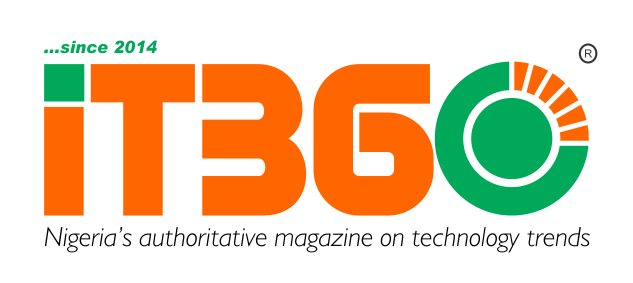Since the pandemic, working remotely has become more and more common as a business option. In recent years, there has been a significant global trend towards remote work. Kitchen tables replaced office desks from Tokyo to Toronto. At the moment, 12.7% of full-time workers work remotely, demonstrating how quickly remote work settings are becoming commonplace. Concurrently, a noteworthy 28.2% of workers have adjusted to a mixed work style. This paradigm offers flexibility and retains some degree of physical presence at work by combining home and office work.
Nigeria’s tale, however, is unique. The growth of remote work was 200% in just two years. In the current digital era, remote work is becoming more and more accessible, offering professionals who want to leave typical office settings a workable option. Since technology and the internet have advanced, remote work has gained popularity worldwide and presents a wealth of opportunities for professionals in a variety of fields.
Companies can hire workers from all over the world and save money on utilities and real estate by having a remote workforce. Since the cost of essential facilities to be used in the business has increased, operating a business has not become any more affordable than it was a few years ago. Additionally, the business can hire the best talent available without requiring them to work on-site, allowing them to complete projects more effectively and with greater conviction. Offering remote work to eligible employees can draw in top talent, foster employee loyalty, and broaden the culture of the business.
In a world where physical boundaries are becoming increasingly irrelevant, the paradigm of work is undergoing a revolutionary shift. Explore with us the transformative impact of remote work as we delve into its benefits, challenges, and the untapped potential it holds for individuals and businesses alike.

Benefits Associated with Remote Work for Start-Ups.
Remote work for all employees should be considered by any company or organisation that wishes to fulfil its objective, if at all possible. Businesses that accept this new business reality will find several advantages for both their workforce and the business.
- Eliminating expenses.
Both now and down the line, remote employment saves your company money. You won’t have to worry about office space maintenance fees when you have remote workers. While hybrid work arrangements might help save costs, organisations can save the most money by doing away with office supplies, utilities, and rent.
Furthermore, remote workers frequently experience cost reductions on transportation and other work-related expenses, which can result in substantial savings for your company as well as your employees. This has two advantages for your company: it saves money and gives workers a rise in a practical way.
- Adjust to achieve objectives.
Effective remote work necessitates that teams and their leaders concentrate on output. Remote teams become more nimble when they have their sights set on the goal. In order to achieve strategic goals, they swiftly adjust to new possibilities and obstacles, as well as changing market conditions.
Businesses operating in industries that are fast-paced and undergoing rapid change may find this flexibility extremely advantageous. It’s crucial to remember that not all teams are suitable for remote work, despite its many benefits.
It will be up to leaders to determine what is best for their companies. If your team feels that working remotely is a good fit, you may fully benefit from it by committing to the approach.
Long-term success can be attained through remote work in a number of ways, including the capacity to win the talent wars and create a diversified workforce, as well as by increasing employee satisfaction and reducing expenses.
- Employee morale is raised, and they feel appreciated and valued.
One perk that has long been desired by employees is remote work. Over the past 20 years, research and publications have demonstrated that organisations with strong remote policies have greater levels of key performance metrics, employee engagement, and productivity.
A remote work policy for all employees is crucial for any company, agency, department, or organisation to think about and implement in this day and age, when employee engagement is critical to the success of the business. Employees frequently care more about their company and its objectives when they feel valued.
- It lowers turnover and increases executive retention.
Businesses that take the initiative to permit remote work will find that doing so increases executive engagement and retention while lowering turnover. Many workers stop aiming for higher positions within the company when remote or flexible work is prohibited or discouraged, which hinders their career advancement and reduces the pool of top talent.
Understanding and addressing the realities of executive turnover is crucial for leaders and organisations to avoid losing their best talent, particularly among underrepresented groups like women executives and people of colour. Businesses grow more significant when they work to promote diversity and inclusion. This important idea can even be expressed using the following theme: Develop the team to develop the organisation.
- It makes it possible to model remote work behaviours effectively.
In a lot of sectors of an organisation, executives set the example for good work behaviour and cultural norms, yet they rarely do so when working remotely. For the sake of accessibility and role modelling, businesses and organisations frequently permit rank-and-file employees to work remotely while requiring managers and supervisors to remain in the office.
Nonetheless, it is imperative that senior leaders provide a model for how to operate efficiently from a remote position in the digital age. This can serve as an example of efficient distance delegation, leadership in virtual meetings, and the use of electronic systems.
Changes in the workplace affect all generations. It’s possible that the millennial generation is spearheading technological advancements, unconventional thinking, and creative problem-solving. To prevent burnout, they still want mentors who can teach them the ins and outs of working remotely and striking a balance between work and personal life.
- It makes it easier for businesses to select and hire the best applicants.
Increasing the number of applicants for a position enhances the calibre of the company. In the next five years, a sizable chunk of the workforce will be eligible for retirement, and since the proportion of workers under 30 is rising, companies must do more to entice the younger generation to work for them. This is particularly valid for workers whose abilities are in great demand.
Technology integration and flexibility enable smaller businesses to compete with the likes of Facebook, Google, and Verizon. To draw in the most productive workforce, smaller companies must provide the newest generation of workers with competitive options.

How to Put in Place a Productive Policy for Remote Work.
Nearly 30% of American workers will be doing remote work in 2023. In the upcoming years, perhaps, Nigeria will match that figure. Nevertheless, establishing clear expectations for employees on when they can work remotely or adjust their schedules requires a well-thought-out remote work policy. A remote work policy ought to include provisions that guarantee unambiguous expectations and open lines of communication between the organisation and each member of the remote team. The following are some relevant pointers regarding what should be covered in your remote work policy:
- Describe the requirements for eligibility: Think about whether employees can work from anywhere or if they need to live close to your company. Establish which jobs can be completed from home and the frequency of such labour if your company is only partially remote.
- Create a work schedule: Divide company objectives into quantifiable goals and tasks to develop a successful remote work plan. Identify the technologies and tools required for employees to properly collaborate when working remotely. Think about providing technical assistance to people who run into problems. After that, you can consult with staff members to determine the most effective ways to monitor productivity and use measures unique to each role when determining how to evaluate performance.
- Establish communication procedures: Take into account the following standards for cooperation and communication with your remote team:
- Determine if workers should be available during specified hours or if they can set their own schedules. Be understanding of their individual schedules and accommodating when it comes to letting them work during core hours or inside a specific window.
- Establish timelines for emails and messages to be responded to. Consider workloads and time zones. Set a deadline for answering critical emails or texts.
- Establish policies about when to use email, video calls, and instant messaging. Do your staff members have to use the camera during video calls? To maintain elements of an in-person work atmosphere, think about establishing communication channels for non-work-related matters.
- Ensure that your staff members have access to online training materials and courses. Set up one-on-one sessions to talk about growth and advancement and to receive online coaching with supervisors and their staff.
- Talk about pay: When it comes to adjustments in compensation, particularly when transferring to remote work, transparency is essential. Employees will feel educated and supported if eligible expenses and the reimbursement procedure are made explicit. Having employee consultations regarding their top priorities for reimbursements and benefits might help design a more customised pay plan.
- Security and confidentiality requirements: There are a number of data security hazards to be mindful of when working remotely or from public spaces like cafes, including shoulder surfing, theft, and unsafe networks. In order to lessen the risks, warn staff members about potential dangers and offer advice on how to protect themselves, such as locking screens, utilising strong passwords and two-factor authentication, and refraining from sharing sensitive information in public.
In conclusion, this appears to be a solution for employees who are finding it difficult to commute to work every day in Nigeria due to the country’s rising cost of living, which may make working there depressing. Likewise, due to the amount of capital required for a startup nowadays, business owners view this as a long-term answer to the expense of launching a company in the nation. It is expected that this post will help you decide whether to go remote for your business and what procedures you need to implement in order to make this transition to a remote workspace.


